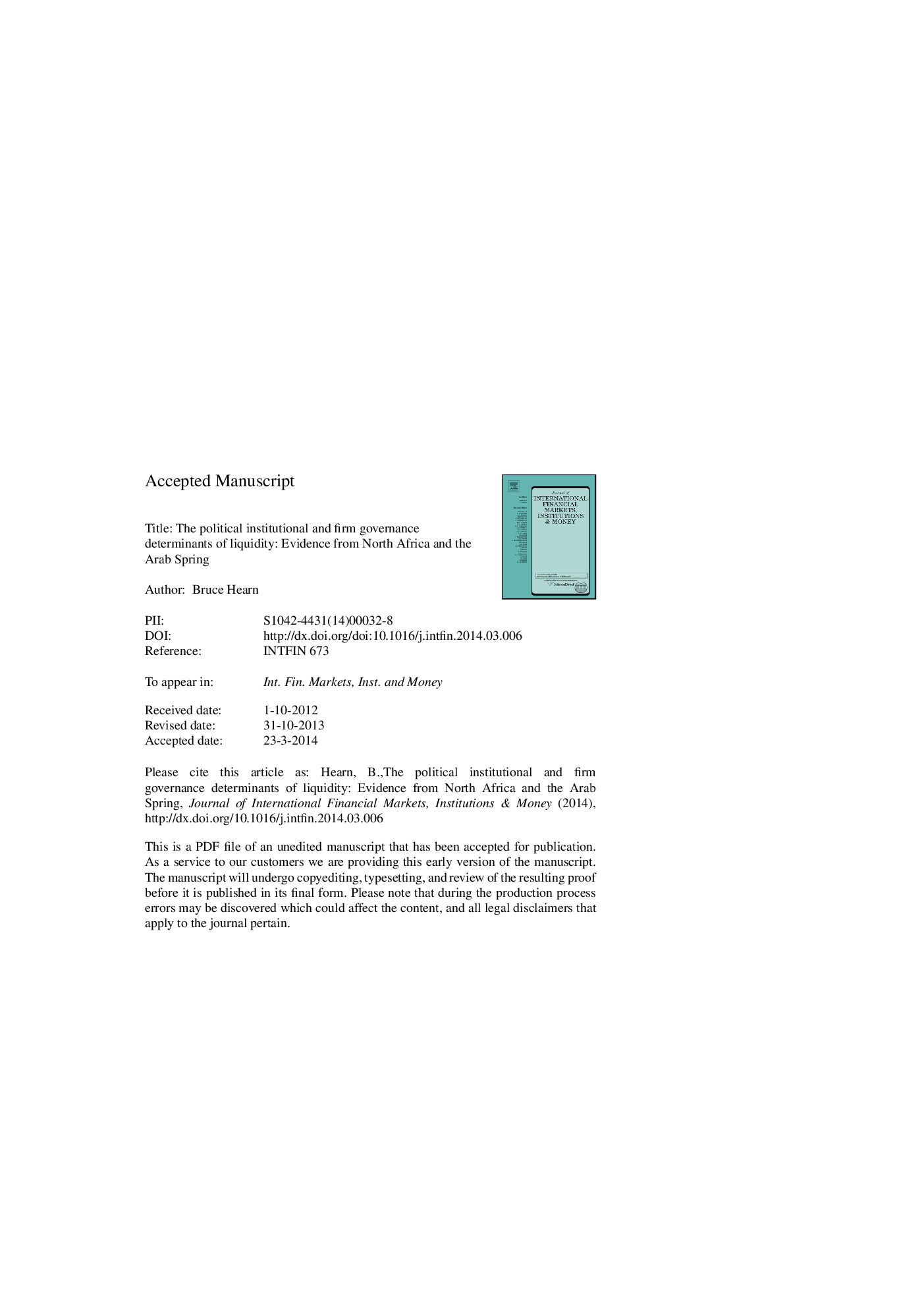| Article ID | Journal | Published Year | Pages | File Type |
|---|---|---|---|---|
| 7364866 | Journal of International Financial Markets, Institutions and Money | 2014 | 55 Pages |
Abstract
This study undertakes a unique comparison into the relative efficacy of four well established liquidity measures, namely turnover, proportion of daily zero returns, Amihud (2002) and Liu (2006), in explaining the bid-ask spread plus brokerage costs when powerful and common firm governance mechanisms are taken into account as controls. These are representative of ownership of listed firms by state, long term foreign partners, entrepreneurial founders, single family entities, extended family groups and business networks, domestic and foreign venture capitalists. An additional control for firms within business network controlled by former Tunisian premier, Ben Ali, and Morocco's royal family is also included. Using a unique sample of all listed firms across the equity markets of Egypt, Morocco, Tunisia and Algeria I find evidence of equity capital rationing during the Arab Spring period of political upheaval. Less well regulated SME markets such as Morocco's marche croissance have liquidity-based transactions costs attributable to Arab Spring four times those of the marche principal while those in Egypt's Nilex are twenty times those of the prestigious EGX30 index. Finally the greatest changes in political risks associated with aggregate liquidity across the Arab Spring are democratic accountability, military in politics, and law and order.
Related Topics
Social Sciences and Humanities
Economics, Econometrics and Finance
Economics and Econometrics
Authors
Bruce Hearn,
